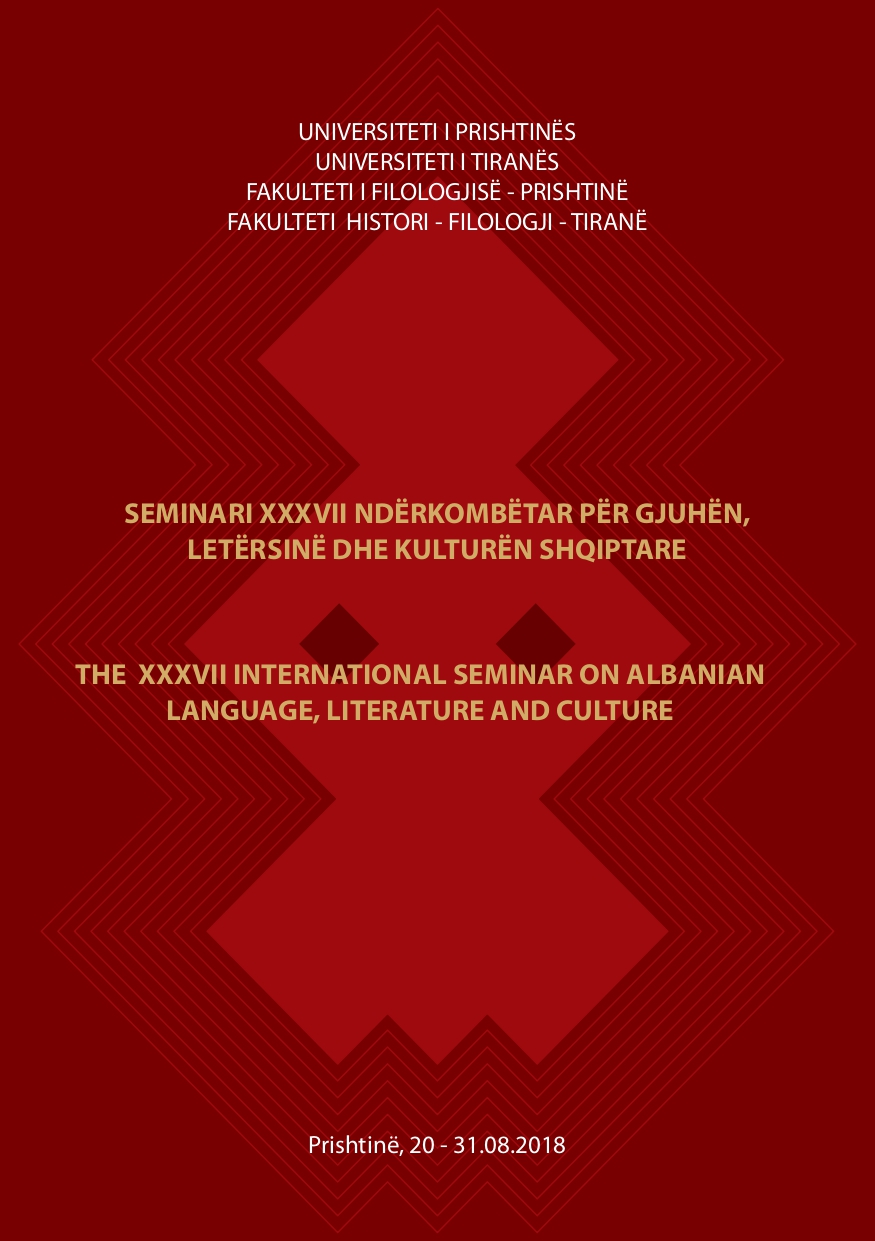Venitja e stigmatizimit të periferisë gjuhësore
Fading of stigmatization of linguistic margins
Zombie standards and the case of Albanian
Author(s): Julie KolgjiniSubject(s): Language studies, Language and Literature Studies, Philology
Published by: Univeristeti i Prishtinës, Fakulteti i Filologjisë
Keywords: destandardization; diaglossic repertoires; heteroglossia; non-standard varieties; language ideology; zombie standards;
Summary/Abstract: Recently light has been cast upon various intermediate linguistic configurations and repertoires that deviate from imposed homogenized norms and also index varying degrees of valorization. The prevalence of such amalgams in public and private domains of (in)formality and familiarity assists scholars in ascertaining various multifaceted disparities in language codification, including hegemonic language ideology (see Milroy, 2001). The salience of these constructions locates Auer’s dialect-standard continuum for various European languages at the forefront, hence yielding space for constructive discourse regarding (de/re)standardization and demotisation as well as diaglossic repertoires, where centrifugal constructions are often fused with centripetal impositions (see Deumert, 2010; Rutten, 2016). Such linguistic (re)alignments allow us to consider the relevance of zombie standards. As Beck (2002) explains, such “[z]ombie categories…blind the social sciences to the rapidly changing realities within the nation-state containers, and outside as well” (cited in Deumert, 2010, p. 259). Varying intensities of these di(a)glossic practices can be witnessed when examining spoken and written communication, including in cyber-spheres, e.g. social media (Schilling, 2016). Such trajectories interrupt homogenizing and ortholinguistic attempts that often stymie various agency-driven languager movements. These counter-hegemonic dynamics as well as living dead categories can be brought to light when various decisions concerning the standardization of Albanian are scrutinized (see Byron, 1976). This paper discusses the crisscrossing of heteroglossic forms in Albanian, thereby highlighting di(a)glossic and demoticised strands in everyday language practices, in particular in relation to multiple media domains. Various situated centrifugal components – including structures with increasingly upgraded prestige and waning stigma, diverging and converging language histories, as well as (multi-)indexical variability – are considered.
Journal: Seminari Ndërkombëtar për Gjuhën, Letërsinë dhe Kulturën Shqiptare
- Issue Year: 2018
- Issue No: 37.1
- Page Range: 111 - 126
- Page Count: 16
- Language: Albanian

